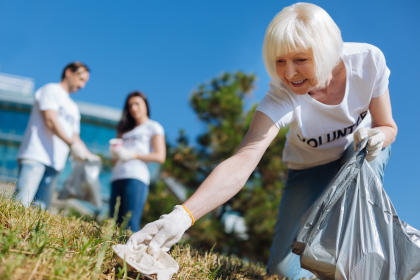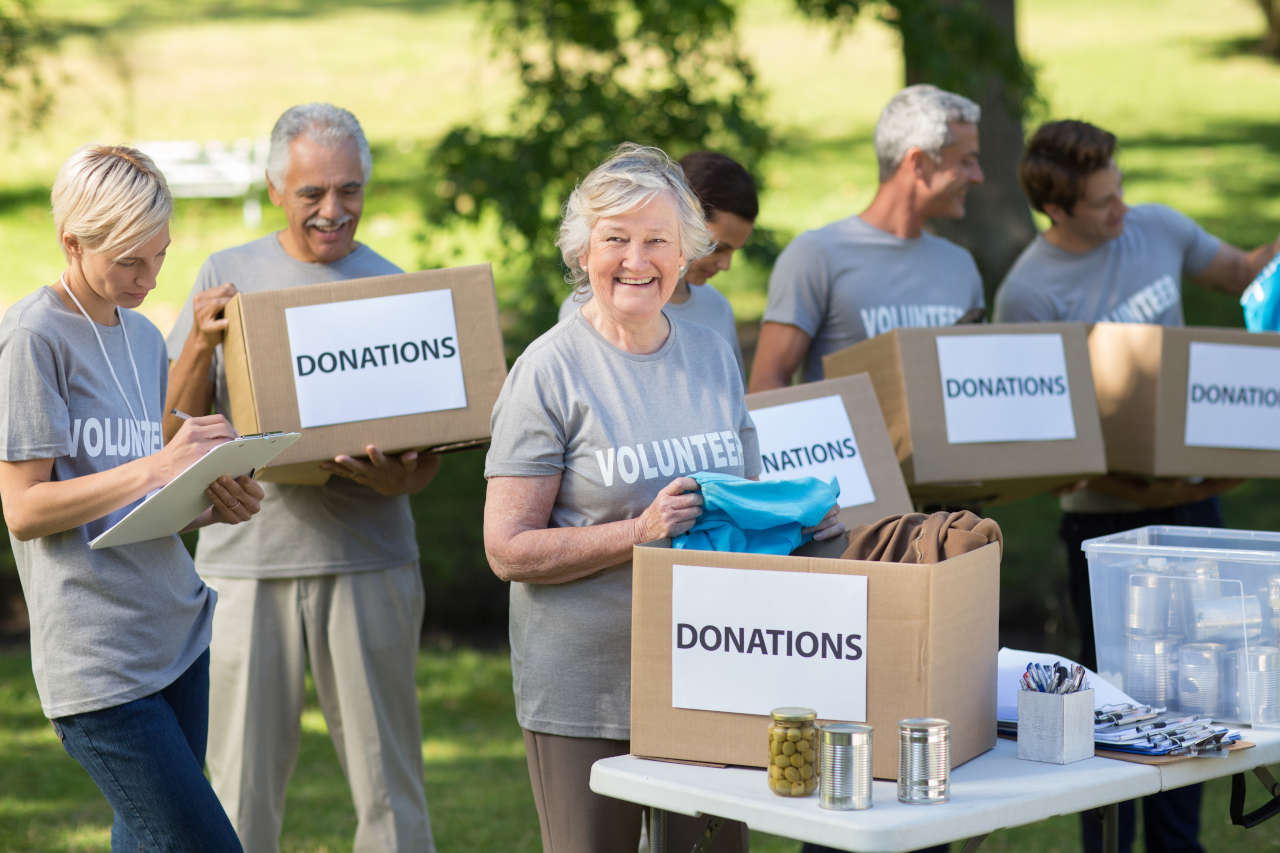Giving back might just be the secret to staying young. As we age and retire, we gain the freedom to discover new interests, strengthen social bonds, and contribute to the community. Many seniors find that volunteering is more than just an activity that keeps them occupied; it also contributes positively to their health.
Medbox: Never Sort Medications Again
The health benefits of volunteering for seniors go beyond mental well-being. It can also lead to better physical health and, ultimately, help you live longer.
Read on to discover how active participation in volunteer work can help you live healthier and longer.
9 Senior Health Benefits of Volunteering
Here are nine ways volunteering can improve the well-being of older adults:
1. Improved Mental Health
Charity work can boost your mental health by helping you build strong connections within your community, which significantly reduces the risk of loneliness and social isolation. Many older adults who volunteer also find a sense of purpose through meaningful activities, which enhances their self-esteem, self-worth, and overall psychological well-being.
A study published in The Gerontologist explored how volunteering activities affect seniors’ self-perceptions of aging and subsequent mental health outcomes. Research results indicate that people who engage in volunteer activities develop more optimistic views of aging, which subsequently results in reduced symptoms of depression. The effects were most prominent in those volunteering more than 100 hours per year, which would be as little as 2 hours per week.
Volunteering helps seniors see aging in a more positive light, which can boost their mental well-being and overall happiness.
2. Lower Stress
Seniors experience lower stress through volunteer work because it offers meaningful social interactions and support networks. Volunteering generates positive feelings because you have achieved something. These good feelings help to reduce stress. Also, charity work often involves social interactions, which help seniors build supportive networks that can ease stress.
Studies have explored how volunteering activities serve as a stress buffer. While the research results could not show a direct link between daily volunteering and overall stress, one study did show an association whereby negative feelings and the negative effects of stress were weaker on days when participants engaged in volunteer work compared to non-volunteering days. This suggests that volunteering may act as a buffer against the emotional impact of stressors. This can contribute to improved emotional well-being.
3. Increased Physical Activity
Volunteer work often includes physical activity, which results in better mobility and improved health. The physical actions needed for event planning, meal delivery, or community clean-up activities can help improve one’s physical fitness.
The Mayo Clinic Health System’s research indicates that adults 60 and older who volunteer experience better physical health than their non-volunteering counterparts. Higher activity levels help preserve strength and flexibility and reduce the risk of sarcopenia (loss of muscle), osteoporosis (weakening of bones), dementia, and many other age-associated physical impairments. In addition to reducing many physical risks associated with aging, increasing activity is one of the best natural ways to boost your energy, improve balance, and reduce fall risks.
Your Prescriptions Sorted and Delivered
4. Better Cognitive Function
Mental activity plays a key role in sustaining existing cognitive abilities and improving functions like memory, attention span, and executive skills. Seniors who take part in volunteer activities experience better cognitive functions. This is because they engage in problem-solving activities and learn new skills. One study explains that cognitive activities can effectively reduce the incidence of dementia and preserve overall brain health and function.
Seniors volunteering as mentors or tutors engage in problem-solving by guiding students through challenges. Those assisting in charity fundraisers handle budgeting and logistics, which sharpens their cognitive skills.
Researchers investigated how formal volunteering activities affect cognitive functioning over time in older adult populations. They used data from 11,000 participants aged 51 and older across nine waves of the Health and Retirement Survey. The results showed that formal volunteer work slows cognitive decline.
5. Lower Risk of Depression
Seniors who volunteer gain social connections and enjoy purposeful activities, which play a crucial role in fighting isolation and lowering depression risk. A recent study found that senior volunteers faced a 43% lower risk of developing depression than their non-volunteering counterparts.
This significant decrease is mainly a result of the meaningful engagement and expanded social networks that charity work fosters. Seniors who take part in volunteer activities sustain an active lifestyle and gain deeper fulfillment.
6. Greater Sense of Purpose

Seniors who participate in volunteer work find meaningful roles that boost their sense of purpose and self-worth. This result improves their satisfaction and motivation. One study showed that volunteering helped older adults maintain their sense of purpose after they lost major life roles such as being a wage-earner and a parent.
These results prove that volunteering can be a powerful way to inspire purposeful living in older adults, especially for those who feel lost.
7. More Social Connections
Volunteering opens up an opportunity to build important social connections. Having a strong network of like-minded people removes the feeling of loneliness and improves social well-being. It is important to be open to making new friends with other volunteers and community members through consistent interactions.
It’s common knowledge that social isolation and loneliness can negatively affect physical and mental health. Even worse, it increases the risk of developing chronic diseases and cognitive decline, as poor mental health is directly linked to a decline in both physical and cognitive functioning. In contrast, maintaining social interactions reduces loneliness and the risk for depression, which elevates mood, instills a sense of belonging and increases overall health.
8. Stronger Immune System
Volunteering helps strengthen the immune system of older adults because it reduces stress. Since charity work usually involves physical activity, it can also help boost your physical health, which has direct effects on your immune system.
Moreover, it helps you build social networks that help you ward off loneliness, which has been linked to a weak immune system. Chronic stress and isolation increase cortisol levels (a stress hormone) and eventually weaken the immune system.
Medbox: Simplify Your Prescription Routine
9. Longer Life Expectancy
The best health benefit of volunteering is that you might live longer. But how? Mental health improvements, together with physical activity and social connections, lead to a longer and healthier lifespan.
One study showed that individuals aged 50 and above who volunteered 100 hours or more per year experienced benefits such as reduced mortality, better physical health, and improved mental health. Another study even suggests that volunteering may even be associated with a reduction in biological age, as measured by an epigenetic clock that uses the measurements of DNA modifications to predict aging. Although these studies are only correlative, they do provide a strong foundation of the potential benefits of volunteering on aging.
Conclusion
Seniors who integrate volunteering into their regular schedule may have found the cheat code to improve their well-being. As we have seen in this article, the health benefits of volunteering are numerous. This singular lifestyle choice can reduce stress, improve mental health, strengthen social connections, and significantly enhance your overall quality of life.


